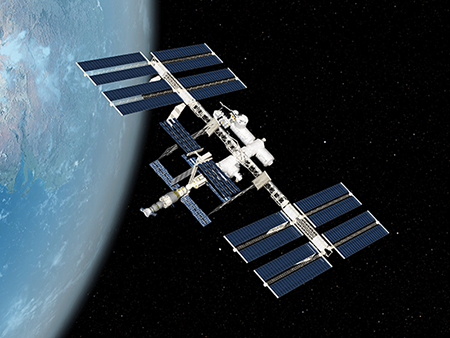 UAB’s Engineering Innovation and Technology Development research group is working to build and maintain cold-stowage units for the International Space Station. The University of Alabama at Birmingham’s Engineering Innovation and Technology Development research group was recently awarded a NASA contract worth up to $48.3 million for the group’s continued work toward building and maintaining cold-stowage units for the International Space Station.
UAB’s Engineering Innovation and Technology Development research group is working to build and maintain cold-stowage units for the International Space Station. The University of Alabama at Birmingham’s Engineering Innovation and Technology Development research group was recently awarded a NASA contract worth up to $48.3 million for the group’s continued work toward building and maintaining cold-stowage units for the International Space Station.
The new contract’s base period begins Friday, Jan. 1, 2021, and runs through Sept. 30, 2022, followed by two additional one-year options and one additional 14-month option that may be exercised at NASA’s discretion.
“The credit for the continued funding from NASA goes to all of the employees who work at EITD,” said Lee Moradi, Ph.D., UAB School of Engineering professor. “Their hard work, diligence, and attention to quality products and customer satisfaction manifest in the award of these contracts.”
The contract will support maintenance, sustaining engineering, integration and operations of the freezers in support of researchers’ objectives involving temperature-controlled science. This fleet of hardware is used to maintain sample integrity aboard the space station and during transit aboard current and future visiting spacecraft. The suite of freezers, built by UAB, includes Polar, Glacier, Iceberg, Cryo Chiller, Glovebox Freezer and MERLIN — owned by UAB — and its equivalents. A dynamic combination of these lockers is being used on the station, supporting critical science.
EITD, a research group of nearly 40 engineers and technicians led by Moradi, has played a key role in NASA ISS research for more than a decade. The group has designed and built a series of freezers capable of maintaining temperatures as low as negative 160 degrees Celsius. Each line of freezers meets specific cold-stowage demands, from storing scientific samples to serving as galley refrigerator/freezers for the ISS crew.
For information about NASA and agency programs, visit www.nasa.gov.
